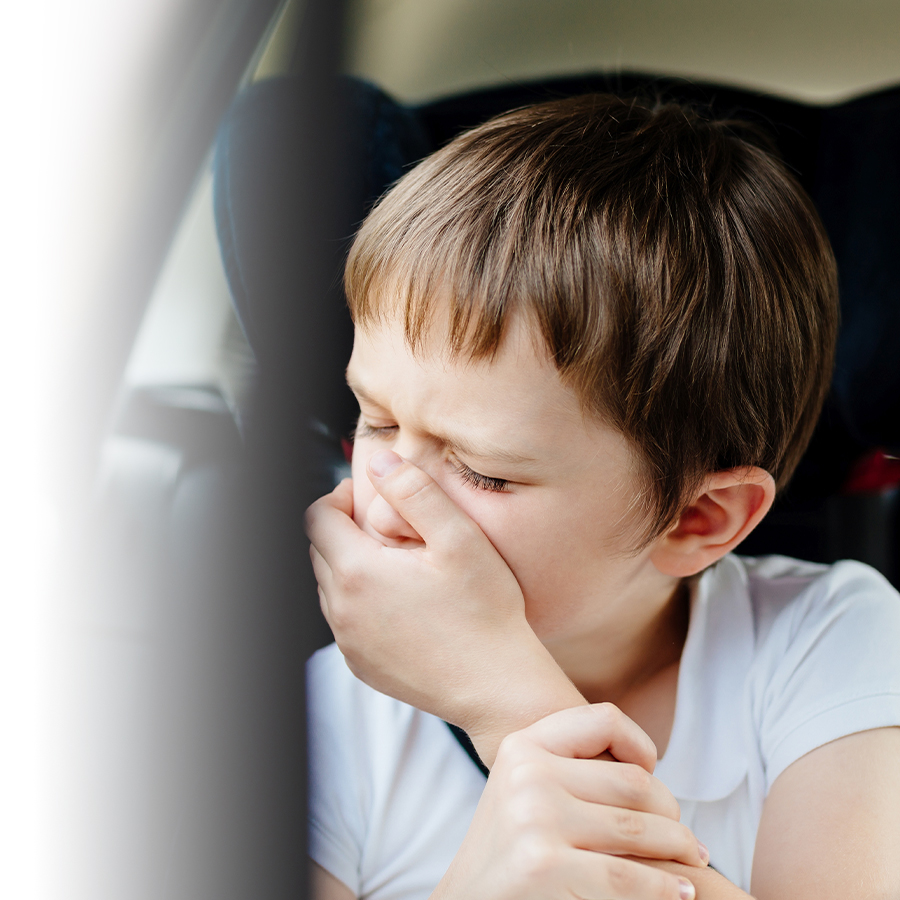Do you worry about travelling because you are often affected by motion sickness? You should know that it is possible to reduce the symptoms and even to prevent them.
Who can be affected by motion sickness?
Anyone can experience motion sickness at some point. It is not a disease, but a syndrome that manifests itself during travel by car, airplane, train or boat. Susceptibility to motion sickness varies greatly from one person to another.
Motion sickness affects women slightly more than men, especially those who are pregnant or experience hormonal changes. Children between the ages of 2 and 12 are particularly sensitive to it, but this vulnerability generally gradually decreases at adolescence.
People affected by certain conditions, such as those who suffer from migraines, can be predisposed to motion sickness.
What are the symptoms of motion sickness?
The most common symptoms are nausea, vomiting, dizziness and light-headedness. Usually preceded by a general feeling of malaise, they are also accompanied by these other symptoms:
- pallor, especially around the mouth
- cold sweats
- yawning
- headache
- drowsiness
- Ptyalism, and
- rapid breathing
What causes motion sickness?
In typical cases such as car travel, motion sickness occurs when the body feels movement that the eyes do not detect. However, the reverse can also occur, that is, the eyes perceive movement that the body does not feel. IMAX theatre and flight simulators are examples of this phenomenon. The person sees the horizon change quickly, but the body does not move at all.
Which factors promote motion sickness?
Most people adapt to the gap between what the eyes perceive and what the body feels. Moreover, motion sickness becomes much less frequent after repeated exposure to the same stimulus. This likely explains why motion sickness is more common in children. Similarly, people who fly for the first time are more at risk of experiencing it than frequent flyers.
The mode of transportation influences the incidence of motion sickness. A cruise is more likely to cause it than air or road travel. The train is the mode of transportation that causes it the least.
How is motion sickness treated?
There is no treatment that completely eliminates vulnerability to motion sickness. Certain treatments such as acupressure, medicinal and homeopathic herbs are sometimes suggested, but their effectiveness remains to be proven.
Preventive measures can be used to avoid the discomforts of motion sickness. For example, sitting at the front of a vehicle (or remaining on the deck of a cruise ship) and looking at the horizon can prevent symptoms or reduce their intensity. Your pharmacist can provide information about prevention and drug-free measures.
Certain over-the-counter medications can reduce and ease symptoms of motion sickness. Dimenhydrinate (Gravol®, etc.) is a well-known medication for this indication and is available in various formats (tablet, syrup, suppository). For the purpose of prevention, it must be taken at least 30 minutes before departure, and its effects last up to six to eight hours. It can be used by people of all ages. Ask the pharmacist for dosage instructions before giving it to a child.
Dimenhydrinate can cause side effects such as drowsiness, dizziness and blurred vision. You should avoid alcohol and any activities that require vigilance, such as driving a vehicle, while taking this medication.
Some studies show that ginger, a natural product, may have an interesting potential against motion sickness. Ginger is easily accessible at the pharmacy in the form of tablets or lozenges, and has the advantage of not causing drowsiness, contrary to other products.
Pharmacists can provide information about the options available to you, including prescribed medications. Don’t hesitate to consult them if you have any questions about motion sickness!

